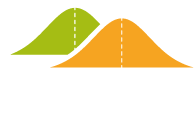Guidelines
WHAT KIND OF REPLICATIONS DOES THIS SITE ACCEPT?
(A) All submitted replications should include at a minimum, a re-analysis (duplication) of an original study within any area of political science. A re-analysis is based on the same data and same methods as the original study, and is sometimes called 'duplication' (King 1995). When uploading your study, you should include the code for your re-analysis, the data you used, as well as the source where the original data can be found, to ensure transparency.
(B) We encourage submissions of replications which not only include re-analyses/duplications, but which extend the original variables, models and data, and thereby conduct robustness checks.
WHAT ARE THE COMMUNITY STANDARDS?
Notification of original authors. PSRI requires that persons submitting the replication notify the original author by email that the replication will be shared on PSRI’s site, and share the replication write-up and materials with him/her. This notification must occur before the replication is submitted – we require that the submitter ‘checks the box’ when they submit their study, indicating they have contacted the original author.
We invite all original authors to comment on replication studies, and we will wait 3 weeks after the time of submission to make a submitted study “public.” This way original authors can prepare comments.
Professional communication. PSRI requires that all submissions use professional, courteous and collaborative (as opposed to confrontational) language. If any submission is deemed by site editors to contain offensive expressions towards original authors or their work, we will decline to post the submission on our site. Readers of the site are asked to contact us if they feel any submissions have violated this community norm.
The same is true for comments on the site. We welcome comments on all submissions. Post-publication review of replications is very important to our effort. But we will take down any comments which violate the spirit of a collaborative effort by containing hostile or insulting language.
WHAT COMPONENTS MUST REPLICATION SUBMISSIONS INCLUDE?
All replications must include the following:
(1) Short replication write-up describing the procedure of the replication and the results. We encourage authors to be as clear and detailed as possible, and to be transparent about exactly what they did in their replication.
(2) Abstract
(3) Replication code. We require that all replications include replication code. The code should be clearly labelled (i.e., which figure, table in the original article etc. is being replicated). If the replication includes additional analyses such as robustness checks, this code should be included as well. We do not require that code be submitted in a particular format.
(4) Replication data. Ideally, the data should be included as well. This would include whatever data is needed in order for the replication to be replicated. In some cases, this will not be possible, and if it is not included, the reason will be requested with the submission. The reason may be, for example, that the original data is not publicly available and the original researcher did not give permission to the replicator to share the data.
(5) Metadata. We require metadata on the original publication and the replication write-up, which should contain a description of all files and clear explanation of the variables used in the models.

